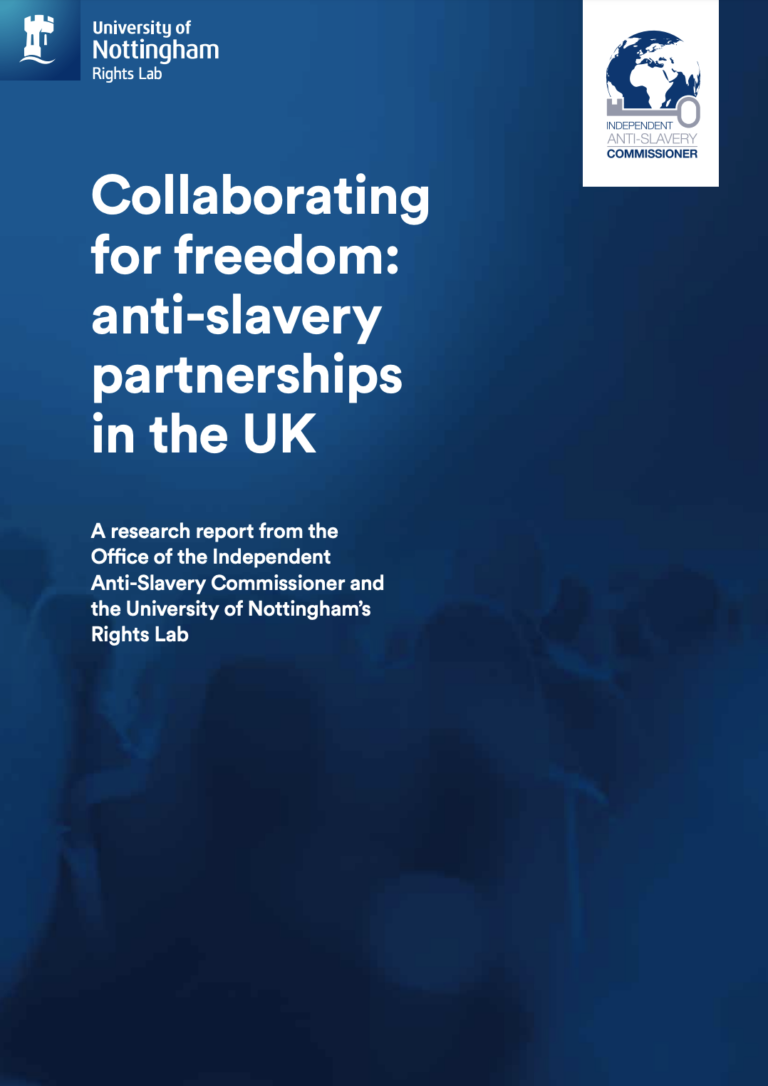2017 UK Annual Report on Modern Slavery
This Annual Report focuses on the steps the UK Government, the Scottish Government and the Northern Ireland Executive have taken in 2017 to combat modern slavery, including human trafficking.
Multi-agency partnership working is often highlighted as an essential aspect of the UK public policy response to modern slavery. The Home Office’s (2014) Modern Slavery Strategy emphasises that effective partnership work is ‘crucial’ and must include ‘greater awareness among frontline professionals, coordinated international activity, close working with the private sector and support from communities, including civil society and faith groups’.
However, despite the priority placed on partnerships by the UK Government, there has been little guidance to date on the form they should take, or how they might best identify and deliver shared goals and responsibilities. In the majority of cases there has also been no dedicated funding to facilitate partnership activity, and no means of monitoring what activity is in place. This means that until now, relatively little has been understood about the different partnership responses to Modern Slavery that are emerging across the UK.
This research report is part of a collaborative project between the Office of the Independent AntiSlavery Commissioner (IASC) and the University of Nottingham. The aim of the work was to map multi-agency anti-slavery partnerships across the UK, identify potential examples of ‘good practice’ among them and understand the conditions that helped to facilitate success.

This Annual Report focuses on the steps the UK Government, the Scottish Government and the Northern Ireland Executive have taken in 2017 to combat modern slavery, including human trafficking.
As a country of origin, destination, and transit for forced labour and human trafficking, Thailand has been expanding its efforts to offer shelter and assistance to both Thai and foreign citizens, however, some gaps remain. Using international stand...Read More
This regional, comparative study aims to summarize the situation in the Americas, by identifying regional and national policies and legislation on defining recruitment fees and related costs and regulation of Public Employment Services (PES) and Pri...Read More
Human trafficking is a crime and a human rights violation, with serious human rights and protection implications - and which is known to significantly amplify in times of wars, crisis and conflict. This is reflected in several reports published by U...Read More
Considering the intrinsic transnational nature of trafficking, the partners of the project “Development of a Transnational Referral Mechanism for Victims of Trafficking between Countries of Origin and Destination – TRM-EU” decided to develop a...Read More